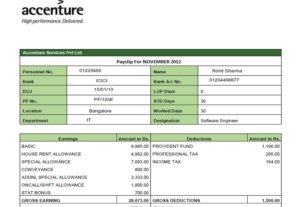Credit card offers have become all-pervasive in today’s world and you’ll see them everywhere from your inbox to stores you shop at. Applying for a card has also become much easier, with banks enticing potential customers with discounts and offers galore. Before you take the plunge and apply for some plastic money, it is advisable to keep some points in mind so you can make the most out of the benefits on offer without falling into debt.
Whether a first-time credit card applicant or a veteran, the sheer number of options available today can confound even the most financially-savvy applicant. The points below can help you figure out the cards that will suit your needs best.
Can You Pay Off Your Dues Each Month?
One of the most important questions that determine your card choice is whether you will be able to pay off your balance each month. Carrying forward a card balance will result in additional fees and charges. Most high-end credit cards like rewards or lifestyle cards come with high interest rates and failure to pay off all dues in time could see you getting into card debt.
If you’re confident you can make all payments on your card each month, you could consider a card with more perks and rewards. However, if you’re not sure you’ll always be able to pay off your dues in full, you could look for cards that offer a relatively low interest rate and fewer perks initially, especially if this is your first credit card.
Check your Credit Score
When you apply for any credit product, whether a loan or a credit card, the bank or financial institution looks up your credit rating or credit report. This report carries a financial summary of your payment history, credit applications and repayments. Depending on the credit agency issuing the report, your credit rating would range from 300 to 900, with the higher score indicating a better rating.
Knowing your rating prior to applying for credit gives you an idea of how potential lenders will view you. A low or mediocre credit rating could result in your application for certain cards being rejected. Multiple rejections will also affect your score, since it indicates to potential lenders that you’re desperate for credit and could default or miss payments. If you have an average or low score, you can request a copy of your report and what you can do to bring your scores up.
If you don’t have a credit score since you haven’t applied for credit before, banks might be hesitant to issue you a card. In such cases, a secured credit card (where the card is issued to you against a fixed deposit) could be an option you can consider.
Why Do You Want It?
Swiping your card for cashback or looking for flyer miles to fund your foreign holiday? Credit cards come packed with various perks and benefits to suit different requirements. Identifying the major spends you’d charge to your card is a good way to choose a card. For example, if you plan on charging household expenses and bills on your card, considering cards that offer cash back schemes or reward schemes would be a good idea.
Frequent travellers could benefit from a card that converts points into flyer miles or other travel perks such as discounts on airfare or hotel bookings. If you’re looking at charging entertainment and dining spends to your card, applying for a lifestyle card with discounts and dining benefits would be a good idea.
Related: PNB Credit Card all things to know
If you’re using the card to pay off a large purchase or as a source of emergency funds, picking a card with a relatively low annual interest rate is advisable. Since credit cards work on a revolving credit basis, any outstanding balance on the card will attract interest. The more perks and benefits your card offers, the higher the interest rate payable on the outstanding.
Best Value and Eligibility
After identifying the type of credit card that best suits your lifestyle, look for one that meets your budget and is the best value in that category. Banks and financial institutions offer myriad discounts and deals on cards across categories and researching available options will help you find the best value.
Look for a card that matches your current income and credit rating, since certain cards require a particular income threshold or credit score. Applying for a card purely because of the advantages it offers without going through the eligibility could result in your application being rejected, which could negatively impact your credit rating.
Read the Fine Print
Credit cards might seem like a shopaholic’s dream since you can defer payment, but there are a number of fees and charges that can send you spiralling into debt. Before you apply for a card, look through the terms and conditions associated with it, such as the interest rate payable and the interest-free period range (if any).
If the card you’re considering offers rewards points/air miles/cashback, it is advisable to look through the terms and conditions against which you can redeem those benefits. Some cards do not offer rewards if an outstanding balance is being carried forward. Some redemptions are chargeable to the card, which could result in additional charges being added to your monthly bill.
Shopping around for the best card in the category you’ve chosen can be daunting, so consider making a list of the key features you would like out of your credit card. For example, if you plan on using your card for online purchases and are looking for cashback, you could look for cards that offer rewards on online spends.
Looking up comparison websites is another way to make the process of choosing a card simpler. There are a number of websites and financial platforms such as BankBazaar which offer comprehensive information on the features and benefits of various credit cards, as well as your eligibility for the same. You can compare and apply for cards that suit your needs and budget without having to trawl multiple banks for information, making the process simpler and quicker.
Published by Bankbazaar.com




Comments are closed.